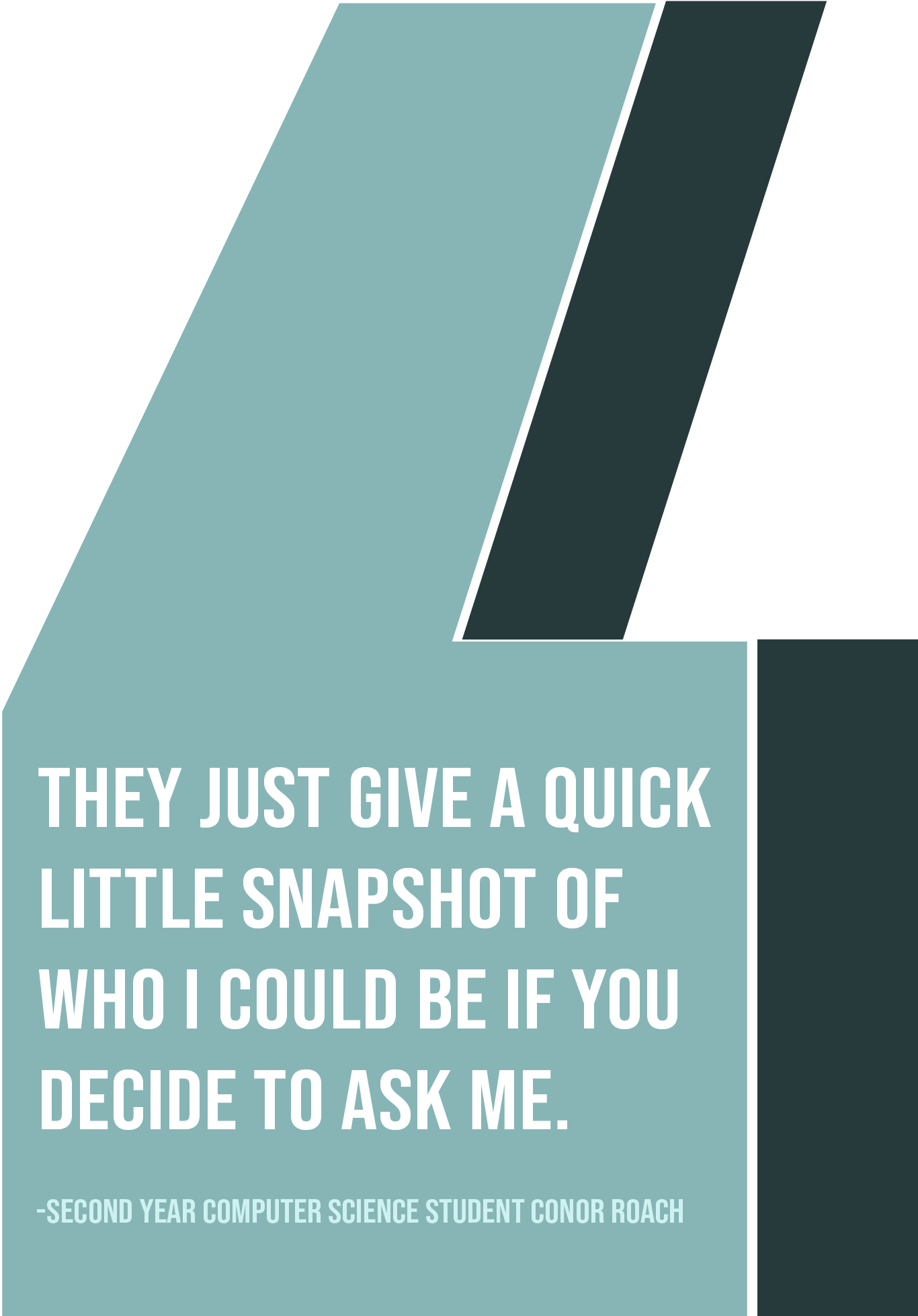They’re slapped onto car bumpers, computer screens and water bottles. No matter where second-year pharmacy student Mac Amos goes on campus, she sees stickers everywhere.
The Daily Gamecock interviewed 41 students about the stickers stamped onto their laptops and water bottles. Whether the stickers embodied school pride, expressed interests, a group affiliation or a political view, every student agreed that they represented one thing — self expression.
“You don't put stickers in your laptop for you to see them honestly. When you open up your laptop, it's for other people to kind of get an insight about you,” first-year biology student Holly Pilton said.
For Pilton, the spread of colorful stickers peppered all over her laptop show that she likes science, she’s part of the LGBTQIA+ community, she’s liberal in her thinking and she’s chaotic, she said.
College is a busy place, and students may not have the time to start a conversation with a perfect stranger without a jumping off point, according to first-year criminology and criminal justice student Ash Stefanco. Through items such as pins or stickers, students can invite that conversation, Stefanco said.
“People who also like these things can see my bag and be like, 'Oh my God, I also like that,'” Stefanco said. “And then I can make friends through that, because that's also fun.”
Second-year computer science student Conor Roach, whose laptop is riddled with stickers of art, the beach and Gamecock pride, said that his stickers can do this through giving people a short glimpse into his passions and and his hobbies.

“They just give a quick little snapshot of who I could be if you decide to ask me,” Roach said.
Second-year math student Lathan Gessner said there’s a cost incentive as well. Gessner’s computer is covered in stickers of national parks he doesn’t have the money to go to.
The stickers provide a cost-effective alternative, he said.
“I love them, and I thought they just looked cool,” Gessner said. “Plus, it was like $5 and it's 100 stickers, so there's no point in not putting them on.”
Three other students agreed, including second-year public health student Lauren Douglas.
Douglas only has one sticker on her computer, from a mission trip in Guatemala. She said she liked that it didn’t take up a significant amount of space on her computer but still reminded her of her time abroad, the people she met and the memories she made.
While many students’ laptops celebrate great getaways, the grand majority of students’ stickers originated from one location: USC.
Thirteen students said that some of the stickers on their laptop or water bottle came from a trip away from home or from campus, and 20 students said they got some of their stickers from campus.
First-year political science student Robert Girardeau said stickers always make an appearance at tabling events.
“Everyone who tables likes to give them out,” Girardeau said. “Usually, so that people can associate with their organization. So, I guess it's kind of a status symbol or group identifier.”
The sticker of Amos’s sorority on her computer helps her do exactly that, she said.
“It helps me find other people in the library that (are in) the same sorority with me,” Amos said. “We study together a lot.”
Eight students said they got some of their stickers from a club they were part of or supported.
Even if they don’t identify a group on campus, a student’s stickers may point to an identity. First-year media arts student Jalencia Pouge sports a flag with pink, orange and white stripes on her computer. It tells the world she’s a lesbian.
“(I’m) very proud of my sexuality,” Poughe said. “I’m very open about my love for women.”
Second-year public health student Sharon Urbina said that LGBTQIA+ stickers can also mark an individual as a safe space for a lot of people.
While stickers can serve as a point of connection, Urbina said they also foster individuality.
“It’s really important in college to have your own self, because sometimes I feel like you might get lost amongst so many people,” Urbina said. “I feel like to have something little as a sticker or a pin, makes you feel more unique amongst different people.”
Sometimes, however, a controversial sticker can get mixed results.
First year information science student Albert Little has stickers representing his favorite shows, sports and the places he's been. He said he hopes his stickers make him more approachable, even to people who don't share with his interests.
“You don’t have to agree with what I like, but it shows you who I am without even talking to me," Little said.
First-year neuroscience student Katie Letwink sports a sticker on her laptop that says “women belong in the kitchen,” with the word “kitchen” crossed out and “lab” written underneath it.
“A lot of girls look at it, and they're like, 'Oh my God, I love your computer,'” Letwink said. “Some boys look at it, and they're like, ‘Why do you have that?’ But it depends on the person. I kind of just put it there for (fun) to be honest.”
Third-year civil engineering student Ethan Masset said that there is sacrifice behind every form of self expression.
He said if someone is committed to a belief, there are always going to be people who disagree. Another sacrifice to expression is cost, and stickers are representative of that, he said.
“You're sacrificing a resale value of a precious thing, like an entire car, a Mac Book, or a laptop in general, or even a water bottle, just to show other people what you're about, or what you've done,” Masset said.
Whether meaningful or arbitrary, insightful or humorous, Amos said stickers are universally fun.
“I think it's just like a great way for people to just, like, share a message, or like, just like show like some positivity or on campus," Amos said.

